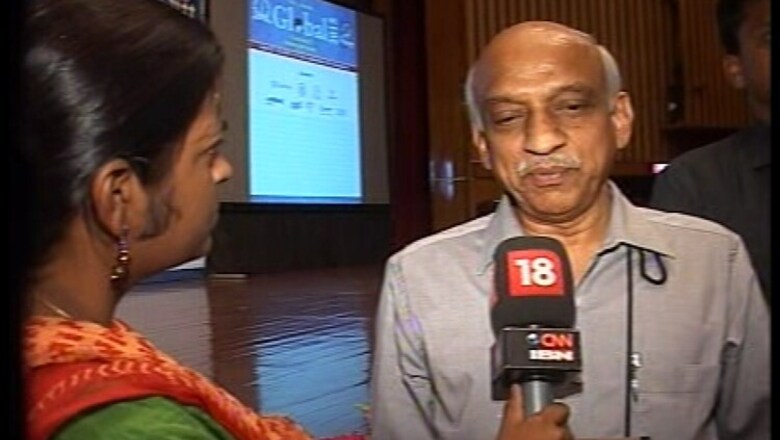
views
Bengaluru: India and Pakistan will collaborate on developing the SAARC satellite under Indian Space Research Organisation's guidance, said ISRO chief AS Kiran Kumar. The satellite is expected to be launched by December 2016, proposed by Prime Minister Narendra Modi as a 'gift to the neighbours', Kumar said.
Kumar said, "On June 22, we had a meeting and representatives from all seven nations came. People from Pakistan also came. The MEA is working out modalities and we waiting for a final approval."
Speaking on the sidelines of IISC Alumni Global Conference 2015 'Science for Society', he said "....meeting has taken place (with SAARC countries), MEA is coordinating this. The satellite will have twelve 'Ku' transponders," he added.
Modi had in June 2014 asked ISRO to develop a SAARC satellite which can be dedicated as a "gift" to the neighbouring countries to help them in areas such as tele-medicine, weather forecasting and communication.
Modi made an announcement on India's decision to develop the satellite at the SAARC summit in Kathmandu in November 2014.
On Monday, deliberations were held with experts from other SAARC countries to finalise modalities for developing a satellite exclusively for the regional grouping.
Speaking about the meeting, Kumar said "It was a very good meeting, we had five representatives from each of the seven countries other than India...So it was an extremely good meeting where all participants were made aware of what can be done with the SAARC satellite, so all went back quite happy."
"Pakistan also came, in fact they came in the larger number than the rest. We had invited five from each country- about nine of them had come. They also participated," he said.
Kumar said, "It will be a communication satellite and will provide them opportunity to make use of the transponder for their own use, whether it is education, tele-medicine or disaster monitoring.
"Plus there will be a capability to interconnect all these eight countries like hot contact for the political level, MEA interconnection, disaster monitoring constellation, connectivity for all eight countries and also in terms of meteorological data decimation...," he added.
Kumar said SAARC countries have began to think on having a SAARC Consortium for future space programme for the benefit of the region on the lines of the European Consortium.
He said, "Each country will have some capability exclusive for them. They will have a ground station. They can do their DTH, they can do their telecom connectivity, what ever they want they can do."
On progress made regarding NASA-ISRO Synthetic Aperture Radar (NISAR), Kumar said "NISAR is a launch for 2021, committee meetings are going to take place again in July. Some team is going to US for further discussion. So it is going on as per plan."
To a question on date for the launch of ASTROSAT, the first dedicated Indian astronomy mission aimed at studying distant celestial objects, he said "it will be in September".
(With additional information from PTI)
















Comments
0 comment